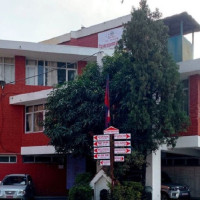- Tuesday, 3 March 2026
Clean Future Without Plastics
Sustainable environmental practices require consistent, daily action and responsible resource management to ensure a secure future. Continuous commitment is paramount. Before buying anything, ask yourself: Do I need this, or is it to show off? Avoid excess packaging, even with food or gifts—leave it with the shopkeeper or skip it if possible. These small choices reduce waste at the source. That's the proper way to honour World Environment Day. Many such simple, often ignored actions can have a significant impact.
The business we conduct, with much more superfluous packaging, you have spent on design and products that purposely draw more consumers. Therefore, you may have succeeded in earning more and creating more jobs for people. But imagine if you designed it to be environmentally responsible and encouraged your customers to do the same. You could genuinely pay justice to all while reducing waste to the greatest extent feasible. This signifies a lot for the celebration of Environment Day.
Today, plastics, as a material, play an essential part in our lives, providing several benefits due to their versatility, durability, and affordability. They are necessary in many industries, including healthcare, food preservation, transportation, and construction. Plastic's lightweight and insulating characteristics help to improve fuel efficiency and conserve energy. Since 2000, global plastic waste generation and mismanagement have posed significant environmental and public health challenges. It has more than doubled, with 353 million tonnes in 2019. Nearly two-thirds of this garbage comprises plastics with less than five years of life, mainly from packaging, consumer products, and clothes. Inadequate waste management infrastructure and the use of single-use plastics further exacerbate the problem, leading to plastic pollution in landfills, water bodies, and other environments. Packaging accounts for 40 per cent of worldwide plastic waste, and addressing the problems it creates is critical. Limiting plastic usage, recycling, upcycling, downcycling, and investigating alternative materials are all essential measures for maintaining the long-term viability of plastic.
This year, the UN World Environment Day 2025 theme, "Ending Plastic Pollution", is directly related to addressing the global crisis of plastic waste management. It highlights the widespread impact of plastic pollution, from oceans and land to the food chain, and calls for action to reduce, reuse, recycle, and rethink plastic use. It supports raising awareness in the broader population about the detrimental effects of plastic waste, promoting urgency for change. The theme is expected to encourage governments, industries, communities, and individuals to take action, urging them to refuse, reduce, reuse, recycle, and rethink their plastic consumption.
The key concerns today are that plastic waste accumulates in landfills and oceans, contaminating ecosystems and harming wildlife. Microplastics and nanoplastics, tiny plastic fragments, enter the food chain and pose health risks to humans. Incinerating plastic releases greenhouse gases, contributing to climate change. Many regions, like Nepal, lack adequate infrastructure for collecting, sorting, and recycling plastic waste. Plastic pollution has led to significant economic costs, including cleanup efforts, tourism damage, and fisheries impacts. Plastic pollution disproportionately affects marginalised communities, impacting their livelihoods and health.
Despite significant gaps in the country's strategic administration, Nepal's key initiatives include the Environment Act, environmental regulations, and prohibiting some plastic products. The standards focus on improving collection and recycling operations, enhancing recycling infrastructure, and raising public awareness. It also hopes to establish community-based recycling facilities and assist social enterprises that turn plastic waste into valuable products. It aligned with the INC5, established by UNEA, which aims to develop a legally binding global agreement on plastic pollution.
Smaller community-based enterprises in Nepal play a crucial role in plastic management by focusing on recycling and upcycling, contributing to a circular economy, and reducing environmental impact. These initiatives often involve waste collection, sorting, and transforming plastic waste into new products like furniture, ornamental items, bricks, and tiles or using some low-value plastics in road constructions and producing fuel. Changing consumer behaviours is one of the complex tasks, and it has been taken as a movement at the localities to increase the number of consumers of bioplastics or alternatives to plastics.
The government attempted to restrict plastic below 40 microns but was unsuccessful; therefore, some strategic implementation would have to be done promptly. Nepal's plastics policy must be clear about which types of plastics we use, which are recyclable, which are non-recyclable or difficult to recycle, and the use of plastics, particularly single-use plastics (SUP), which must be banned and often prioritised to have alternatives in place and promoted. The extensive discussion required "extended producer responsibility" (EPR) to speed the collection and environmentally friendly management of responsible consumer waste after they earned by selling their items. The design of the products is essential, and industrial activities and services must address it. Another critical component is incentivising SMEs or MSMEs who support plastic pollution reduction efforts. They could have provided tax breaks, shared some imports of machines and technologies related to recycling and upcycling plastics, offered investment opportunities with lower interest rates, or acknowledged the efforts made to manage it in an environmentally friendly manner impacting climate action, sustainable production and consumption, and biodiversity protection.
The biggest challenge that such MSMEs face is local taxes; even if the enterprises are VAT registered, when they transfer their collected plastics from other municipalities, they are charged the local scrap tax, which raises the cost of recycling and eventually leads to the closure of their operation. The country's policy should address and promote recycling and upcycling.
Due to the safe and clean collection of post-consumer plastics increasing the value of items, local governments and interested parties must apply to implement it. When locals comprehended and adopted the concept of recycling, Kirtipur Municipality's four wards began collecting clean and safe plastics from their homes and distributing separate pouches under the World Bank/SACEP/UNOPS-funded PLEASE Project.
This adds value to recycling and allows them to illustrate the impact of their efforts; they may now be inspired to build "plastic-managed communities". Similarly, the Dhangadi Sub-Metropolitan City has begun collecting plastics separately for recycling. Rapti Rural Municipality recently partnered with the business sector to produce tiles made from waste plastic. Many municipalities, like Dhankuta, Waling, Bheerkot, and Byas, segregate collected waste and sell recyclable plastics to private vendors.
Small but significant actions, such as Sagarmatha Next and the Sagarmatha Pollution Control Committee's collaboration with Pasang Lahmu Rural Municipality, have processed plastics and other materials to mitigate the challenges of lifting and transferring waste from higher altitudes to their lower Lukla airport. They have begun to keep shredded plastics, aluminium cans, and other recyclables in little pouches. They have made hikers responsible for returning them to Lukla Airport, where private flights would transport them to Kathmandu through their corporate social responsibility (CSR). Another private company, Blue Waste to Value, collects and recycles them at Kathmandu Airport. With this method, many cooperative efforts made 55 tonnes of waste, including around six tonnes of plastics, salvaged and environmentally friendly management in the Khumbu region. In this context, Namche and Lukla will be equipped with new recycling and upcycling facilities, thereby reducing the reliance on material transportation to Kathmandu.
(The author is a technical advisor of the Solid Waste Management Association of Nepal (SWMAN).)
















